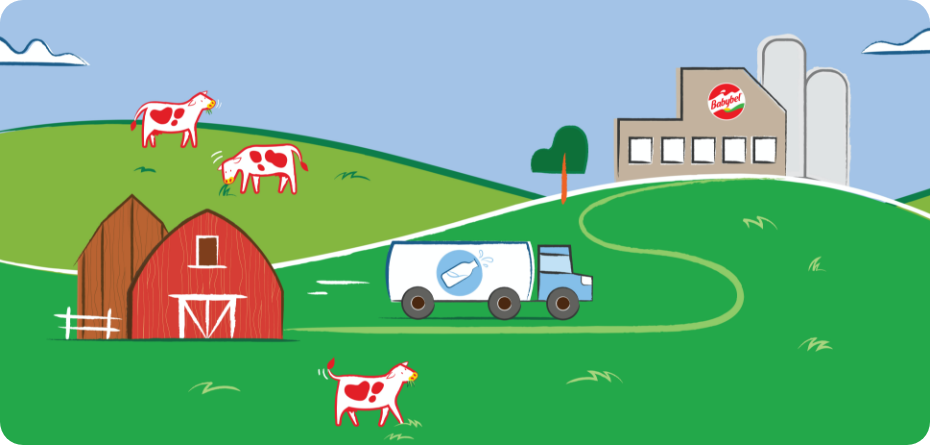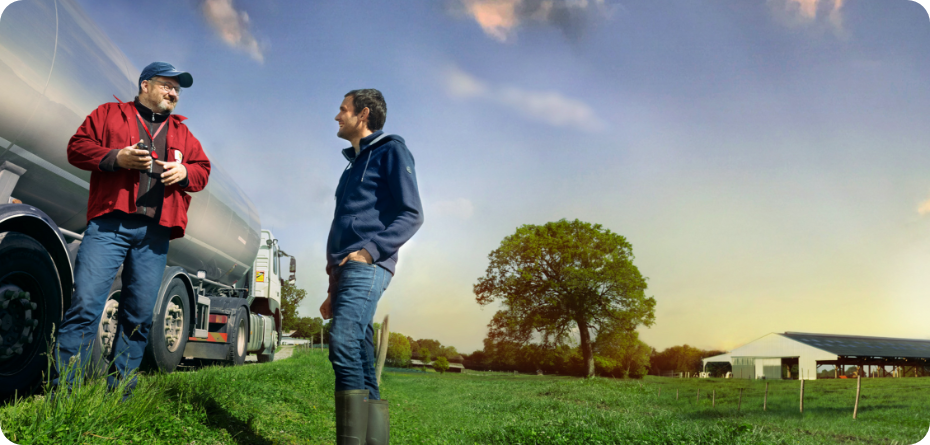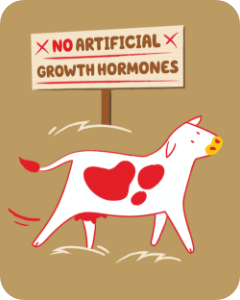Agricultural Goodness
Sourcing
Babybel® collaborates with farmers close to our plants to minimize milk transportation, support our farming communities and to ensure our goods are delivered fresh.

Our milk is provided by farmers local to our factories.
Local farmers provide fresh milk every day or two.

When it comes to quality, we act fast! Our milk can be traced from the factory to the farm in under 4 hours.
The distance from our local farms to our factories is 200km or less!
Farmers for Goodness
Our farmers work hard. Without them, the goodness we enjoy every day would stop at the cows! Here are a few ways we look out for them.

When farmers are paid fairly for their milk, they can better support themselves. So we’ve made that the standard for the hundreds of French farmers we work with.
Our French farmers show they care by implementing sustainable practices. And we care about them! That’s why we’re committed to paying higher than market average for their milk.
Find out more
Since December 2017, every year we renew an innovative remuneration system ensuring financial security for every farmer of the APBO (the Bel west producers association).
We always ensure that our farmers are treated fairly and get a higher than average price of the French market for their milk. We also include bonuses for the implementation of sustainable practices.
Good practices
Behind every happy cow is a dedicated farmer. From supporting sustainable practices to providing good working conditions, we look out for our farmers so they can look out for our cows.

Our farmers treat their cattle to the best living conditions, like ample space and food.
Find out more
FOOD: Cow rations are mainly composed of 80% fodder/grass, and 20% other feed such as grains, canola, soy and sunflower.
LIVING CONDITIONS: We work closely with our partner farmers to ensure the best living conditions for their cattle. Since 2017, Babybel® is helping all partner farmers to improve animal welfare and meet clear objectives by 2025. Babybel’s® commitments are based on Bel’s animal welfare charter, developed in partnership with the CIWF (Compassion in world farming), specialised in farm animal welfare.
BOTH: Free grazing cows (when weather permits) in France since 2018. A minimum of 150 days of grazing a year between spring and autumn.

We’re helping develop the latest and greatest in sustainable practices at our farms.
Find out more
We help the farmers we work with to reach their objectives by 2025 to build a more sustainable dairy sector. Babybel® helps farmers implement good practices on four major focus points: quality of life and workload, environment, animal feed autonomy and cost reduction.

Our farmers value biodiversity! That’s why they aim to reduce carbon emissions.
Find out more
We work with our partner farmers and growers to lower the impact of ingredient production on biodiversity by promoting pasture grazing, development of sustainable farming practices such as crop rotation and soil treatment to protect biodiversity, and promote agroforestry and the planting of hedges on farms.

Bel maintains long-term partnerhsips with milk producers and we are committed to ensuring our farmers get a fair price for their milk.

We encourage our farmers to source feed locally, helping animals and businesses thrive.
Find out more
We promote innovative methods in the farms, such as free grazing, production of local feed for cows and land regeneration or agroforestry. All these practices contribute to create carbon wells and helps to reduce GHG emissions.
Cared-for cows
Why is Babybel ® such a playful snack? It all starts with our cows! Here are some ways we make sure our cows live happy, healthy and PLAYFUL lives.


As with all EU cheese, we use no artificial growth hormones

Our goal is to ensure our cows are fed with 100% GMO free feed!

100% of our French cows enjoy free-grazing in the sunshine. Unfortunately, it is too cold in Slovakia for our cows to be 100% free-grazing.
Find out more
Since 2018, 100% of our French milk comes from free grazing cows – Evron/Sablé sourcing ONLY

All our cows enjoy the outdoors in the sunshine, and the comfort of barns at night.
Find out more
As soon as the weather picks up, cows are outside and eat grass. During pasture season, cows are out during the day, and they take shelter for the night in barns.

All our cows stay healthy by eating a balanced diet of grass, hay, corn and soy.
Find out more
Cow rations are mainly composed of 80% fodder/grass, and 20% other feed such as grains, canola, soy and sunflower.

Our french cows graze for at least 150 days a year between Spring and Autumn!

All our cows are cared for, ensuring they live happy and healthy lives.

Our partner farmers keep cows comfortable with plenty of space in their barns.
Positive Impact on Forestry

We’re constantly striving to find ways to limit the impact we have on the environment, while making sure our cows are fed the best feed. Our goal is to achieve zero deforestation impact!
Find out more
In collaboration with the WWF, which help to reduce deforestation, we encourage the development of sustainable ingredients used for animal feed.
We avoid importing feed where we can!
Find out more
Free grazing also contributes to food self-sufficiency, which makes it possible to reduce imported food which can contribute to deforestation, thus contributing to the protection of equatorial forests and biodiversity.
We encourage planting trees and hedges to provide our cows with shade while helping fuel a thriving ecosystem and enrich the soil for delicious grass. Just ask our cows!
Find out more
Planting trees and hedges in the pasture areas can provide shading for the cows, richer soil and grass of greater quality, while developing a strong and more resilient ecosystem!
How do we protect biodiversity? By developing pasture areas around farms that let earthworms do their job. When soil is protected and not turned over, it captures carbon and nitrogen and stimulates biodiversity like insects and pollinators. Planting hedge rows creates homes for wildlife.


